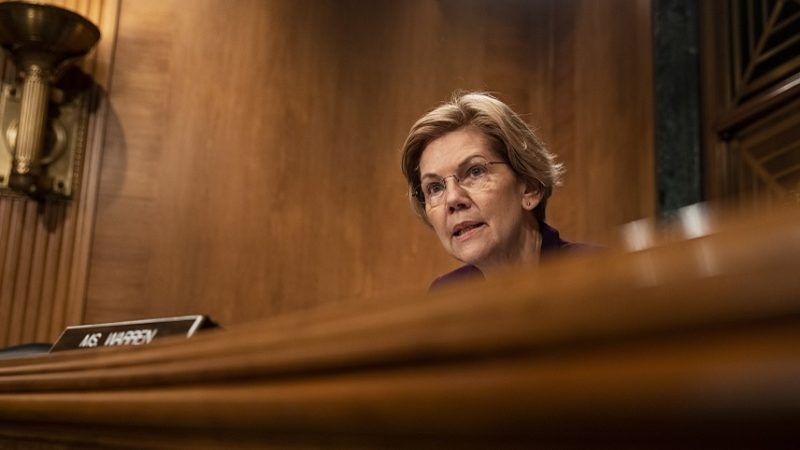Elizabeth Warren Wants To Run Your Business for You: Podcast
George Mason's Todd Zywicki says the senator and presidential hopeful has inherited the ideas of Louis Brandeis without learning the lessons of overregulation.

"I am a capitalist," says Massachusetts Sen. Elizabeth Warren, who is also a leading contender for the 2020 Democratic Party presidential nomination. "I believe in markets."
She's got a funny way of showing her faith. Last week, she unveiled her plan to break up tech giants such as Facebook, Amazon, Google, and Apple. She's called for a "wealth tax" that would target households with over $50 million in assets and introduced the Accountable Capitalism Act, which would force corporations with over $1 billion in annual revenue to get a national charter and give employees the right to vote in 40 percent of a company's board of directors. She was also the driving force behind the creation of the Consumer Financial Protection Bureau, an Obama-era agency that was widely assailed by free-market analysts as overly intrusive and unaccountable.
To get a sense of where Warren's ideas come from, I talked with Todd Zywicki, a longtime critic of Warren. Zywicki teaches law at George Mason University and is the former director of the Office of Policy Planning at the Federal Trade Commission. Zywicki says Warren is a direct ideological descendant of Louis Brandeis, the Progressive Era lawyer and Supreme Court justice who attacked what he called "the curse of bigness" in business and pushed for a massively regulated economy. Warren, says Zywicki, has thoroughly absorbed Brandeis's distrust of large firms, as well as his belief that "disinterested" bureaucrats can smooth out any and all issues with free markets. What she doesn't understand, he says, is that the regulatory agencies championed by Brandeis were routinely captured by the businesses they regulated or diverted by the idiosyncratic whims of commissioners, leading to the increasing ossification of the U.S. economy through much of the 20th century until deregulation took hold first during the Carter years and later under Ronald Reagan. More recently, notes Zywicki, the Dodd-Frank laws passed in the wake of the 2008 financial crisis to limit the power of banks have actually increased concentration in the financial sector.
Subscribe, rate, and review our podcast at iTunes.
Listen at Stitcher by going here or clicking below:
Listen at SoundCloud below:
Photo credit: Alex Edelman/picture alliance / Consolidated/Newscom
Don't miss a single Reason Podcast! (Archive here.)
Subscribe, rate, and review our podcast at Google.


Show Comments (32)